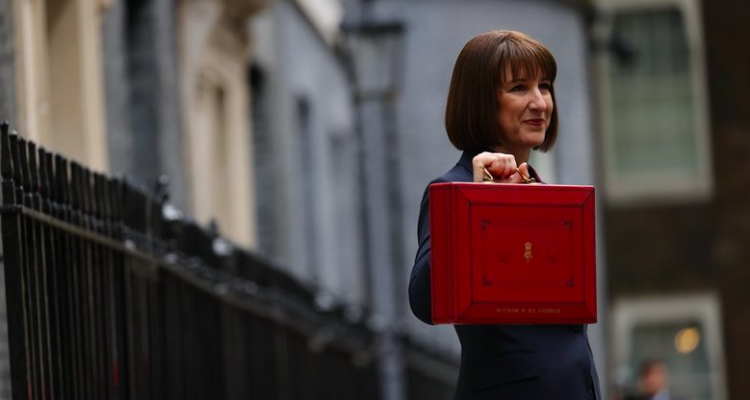Rachel Reeves was already facing one of the biggest challenges experienced by any Chancellor of the modern era in the run-up to what was billed as a ‘make or break’ Budget – both for her and for Keir Starmer.
A series of damaging leaks and briefings over the past few weeks hit Budget preparations – as she tried to balance the competing interests of the bond markets, concerned by the government’s apparent lack of grip on borrowing, and rebellious Labour MPs, most of whom wanted higher spending on welfare.
The shambolic run-up plumbed new depths less than an hour before her Budget speech when, in an astonishing blunder, the Office for Budget Responsibility proved its name was a misnomer by hitting the ‘send’ button too early and accidentally publishing its official forecast in advance.
It was an unprecedented leak of the entire Budget by the Treasury’s own watchdog. “Office for Budget Irresponsibility more like,” an exasperated government official groaned.
The deep unpopularity of the Government, with Cabinet plotters scheming against the Prime Minister, meant that Reeves’s primary political task was to buy precious time for herself and Starmer, whose fates remain inextricably linked.
There were no Budget ‘rabbits’ to pluck from her hat – how could there be when almost all the main measures has been either leaked or briefed, including the extraordinary U-turn when she first leaned into, and then dramatically away from increasing income tax rates?
Instead there was a longer-than-expected three-year extension to the freeze on income tax thresholds, dragging almost one in four people into higher rates by 2030, a new mansion tax of properties worth more than £2million (with another hike for those worth more than £5million) and a £4.7billion raid on ‘salary sacrifice’ schemes which allow employees to exchange a proportion of their wages to contribute to their pension savings.
The latter was one of several items on the Chancellor’s ‘smorgasbord’ of tax moves which hit employers, including on dividends for business owners and a rise in the National Living Wage. These came in the wake of last year’s increase in National Insurance Contributions for employers, as well as increased costs when the Government’s package of new employers’ rights comes into law.
Taken in total Reeves announced £26billion in tax rises in the Budget – her two Budgets have seen increases of £66billion. In their 2024 election manifesto Labour promised ‘just’ £8.5billion rises. By 2030-31, tax will be a record 38.3 per cent of the country’s Gross Domestic Product (GDP), a fact seized upon by the Conservatives who had faced similar ‘high tax’ charges levelled at them in government…including from then shadow chancellor Rachel Reeves.
“I am asking everyone to make a contribution,” the Chancellor said in today’s statement. Her speech was met with a savage attack from Kemi Badenoch, who is growing in confidence as Leader of the Opposition.
On the other side of the ledger, welfare spending will be £16billion higher by 2030-31, a figure which includes the scrapping, entirely, of the two-child benefit cap – a touchstone for Labour MPs and a move which ministers were quick to trumpet would lift 450,000 children out of poverty.
GRIM SLOG
The rest of this decade is mapped out as a grim slog – with sluggish growth limping along at around 1.5 per cent a year, inflation edging up and living standards improving at a slower rate than previously forecast, largely because of slowing real wage growth and higher taxes.
With many of today’s tax increases not coming into effect until two or three years hence, it does not appear to be the ideal pathway for an unpopular government preparing to face a restive electorate in 2029, with Reform UK consistently comfortably ahead of Labour (and the Tories) in the polls. Some observers were questioning, with the election timetable in mind, whether some of the rises would come in at all.
However, the Chancellor will be hoping she has gone some way towards achieving both her political objective of prolonging her own survival and that of the Prime Minister, and her economic objective of calming the bond markets, with the key 10-year UK gilts measure – the interest rates on government debt – initially slightly down from its opening level in a boost for the Chancellor
Uncomfortably for Reeves and Starmer though, the reckoning in the form of next May’s vital local elections is now less than six months away – and it is unlikely that today’s Budget will do much to revive Labour’s political fortunes by then.

katedarkins-7.jpg)





